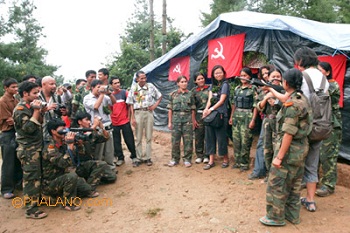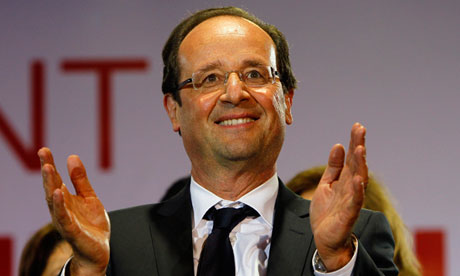Video: Stop the financialisation of nature!
Ecuador: ¿Nueva izquierda o nuevo colonialismo?

[In English at http://links.org.au/node/2918.]
Por Federico Fuentes, traducido para Rebelión por Christine Lewis Carroll
25-06-2012 -- Rebelión -- La crítica a los gobiernos radicales de América Latina se ha convertido en moneda corriente entre gran parte de la izquierda internacional. Ninguno se ha escapado de la crítica, pero el gobierno del Presidente Rafael Correa de Ecuador ha sido un blanco significativo.
Pero el problema de la crítica dirigida contra Correa es que carece de cualquier base sólida y desvía la atención del verdadero enemigo.
Correa fue elegido presidente en 2006 después de más de una década de rebeliones, principalmente indígenas, en contra del neoliberalismo.
Durante la campaña electoral, el economista radical prometió reescribir la constitución del país, rechazar cualquier acuerdo de libre comercio con Washington, negarse a pagar las deudas externas ilegítimas y cerrar una base militar estadounidense en suelo ecuatoriano.
Los movimientos sociales habían hecho la campaña en torno a estas demandas, que es a su vez la razón del apoyo mayoritario a Correa en la segunda vuelta electoral contra Álvaro Noboa, el hombre más rico de Ecuador.
One divides into two – Nepal’s Maoists in crisis

Many fighters of the People's Liberation Army have joined the new party.
June 23, 2012 – Links International Journal of Socialist Renewal, an earlier version of this article was posted at International Viewpoint – The Maoist party, the Unified Communist Party of Nepal (Maoist) -- UCPN(M), has entered a crisis and has split. On June 16-18, 2012, the radical faction of the party held a national convention and decided to organise the first congress of a new revolutionary party, named CPN–Maoist, to be held on February 12, 2013. One-third of the central committee members of the UCPN(M) have joined the new party. Alex de Jong looks at the background to this development.
* * *
France: After election win, what course will Francois Hollande take?

Francois Hollande.
By Murray Smith
June 18, 2012 – Police fire tear gas at protesters.
John Riddell: Lars Lih and Ben Lewis reveal Zinoviev at his best

Zinoviev and Martov: Head to Head in Halle
Edited by Ben Lewis and Lars T. Lih,
Egypt: 'Reject the Supplementary Constitutional Declaration' military coup
June 18, 2012 – http://www.e-socialists.net/node/8845 -- The signatories to this statement announce their complete rejection of the Supplementary Constitutional Declaration.
Québec solidaire agrees to talks on electoral agreement with other pro-sovereignty parties
By Roger Annis
June 21, 2012 -- Rabble.ca, posted at Links International Journal of Socialist Renewal with the author's permission -- On June 20, the National Coordination Committee of Québec solidaire issued a statement in response to a "Call for a United Front" in the next election in Quebec, saying it is open to a “limited and timely electoral arrangement” with two other pro-Quebec sovereignty parties. The statement is titled (translation), "Defeat the Liberals, yes. But above all, build a progressive Quebec!"
The call has received close to 11,000 signatures online. It urges the three pro-sovereignty parties – Parti québécois, Québec solidaire and Option nationale – to enter into an electoral agreement such that only one candidate of the parties would contest electoral districts against the ruling Liberal Party and the right-wing Coalition pour l’avenir du Québec (CAQ).
The mandate of the current Liberal government ends in 17 months. Widespread speculation has it calling an election as soon as August.
NO REDD+! in Rio+20: A declaration to decolonise the earth and the sky

“Against Amazonian Genocide.